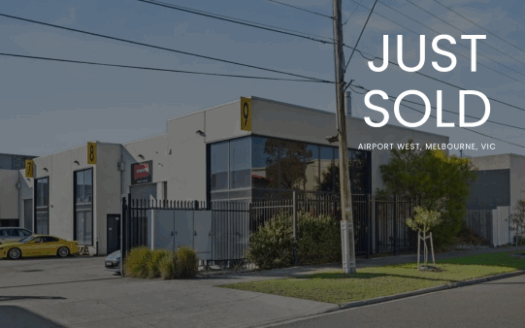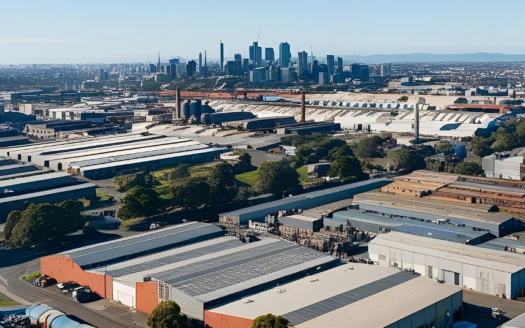Are you considering selling your industrial property investment or divesting part of your property portfolio? Consult our checklist to ensure you cover all details to be ready.
1. Market Research:
- Understand the Melbourne industrial real estate market.
- Evaluate current market trends and property values. Whilst it’s best to consult a real estate agent with experience in industrial property to value your investment, it’s also helpful for you to do prior research to familiarise yourself with the market.
- Consider potential buyers’ needs and what your property offers – is there anything unique about your property that adds value
2. Property Preparation:
- Conduct a property assessment and commence necessary repairs – whilst it’s not always possible for a seller to restore a property to its former glory, a property in good condition often sells faster.
- Ensure the property is safe. Most potential buyers will want to visit the site to inspect it before purchasing.
- Have a clean out – Envisioning the purchase of your property can be challenging for a prospective owner-user buyer when it’s cluttered with unnecessary items. Therefore, take the time to declutter closets, storage rooms, and other spaces to eliminate any remnants left by previous tenants. Additionally, anything outdated or visually unappealing should be removed or concealed from view.
3. Real Estate Agent Selection:
- Research and interview experienced industrial real estate agents. Unless you have a line up of potential buyers ready to go, it’s advisable to reach out to an industrial real estate agent to expedite and manage the sale of your property effectively. A skilled industrial real estate agent can furnish you with a roster of active, qualified buyers who understand and appreciate the market for this property style.
- Verify their track record in selling industrial properties in Melbourne.
- Select an agent with local market knowledge and expertise and good connections. Visit here for more information on this process
4. Property Preparation:
- Ensure the property is well-maintained, clean, and safe.
- Make necessary repairs and improvements for a favourable impression and to prepare for photography by the agent or photography service.
- If you have a copy of a floor plan, have it available to share with the agent.
5. Pricing Strategy:
- Work with your real estate agent to determine a competitive asking price.
- Consider the property’s condition, location, and market comparable.
- Be open to adjusting the price based on market feedback. Your agent will always strive to maximise your selling price, but it’s important not to price it above the market demand.
6. Marketing Plan:
- Do you want to sell on the market – e.g. advertise the property for sale? If so, your agent can develop a comprehensive marketing strategy according to your budget. Examples of marketing techniques include premium listings on property platforms, Google Ads, social media, electronic newsletters, property boards and flyers, and direct selling within the commercial real estate agents’ existing network.
- Do you want to sell your industrial real estate off-market? An off-market sale can be a legitimate option for those seeking a more discrete transaction. Property photos and features will still be required; however, existing agency networks will facilitate the sale.
7. Documentation and Transparency:
- Gather property documentation – Before putting your industrial property on the market, prioritise gathering all the essential documentation. Incomplete preparation can discourage prospective buyers, raising concerns about unresolved issues in the future. Therefore, be sure to have your ownership documents, permits, and any necessary certifications readily available for the convenience of your future buyer.
- Include zoning information, environmental reports, and surveys.
- If you have a copy of a floor plan, have it available to share with the agent.
- If an industrial real estate lease is in place, share this information with the agent (if they don’t currently manage your property). If multiple leases are attached to the sale, e.g. your property is an industrial business park or multi-tenant building, ensure concise lease information with current payment status and lease expiration dates so the future buyer knows when to trigger new leasing services.
- Be transparent about the property’s history and condition; the more the agent knows, the more they can support you through the process.
8. Negotiation Skills:
- Be available and responsive – your industrial real estate agent will be ready to collaborate with you regarding offers received on your property. Therefore, ensure you respond promptly and do not miss any sales opportunities.
- Consider all aspects of the offer, including price settlement terms and contingencies.
- Be prepared to make counteroffers when necessary.
9. Closing Process:
- Work diligently to meet contract contingencies and requirements.
- Coordinate with legal professionals, inspectors, and appraisers.
- Ensure a smooth and timely closing process.
10. Post-Sale Follow-Up:
- Provide necessary documents to the buyer and their representatives.
- Prepare for the property handover.
- Address any outstanding issues or concerns promptly.
11. Financial Considerations:
- Plan for taxes and fees associated with the sale.
- Consult with a financial advisor or tax expert for guidance.
- Ensure compliance with all relevant laws and regulations.
By using this checklist as a reference, sellers of industrial real estate in Melbourne can navigate the selling process more efficiently and increase their chances of a successful transaction.
Finally, if you are thinking about selling your industrial property or need to speak to an industrial real estate agent to understand more about the process, contact CPN Commercial Group








